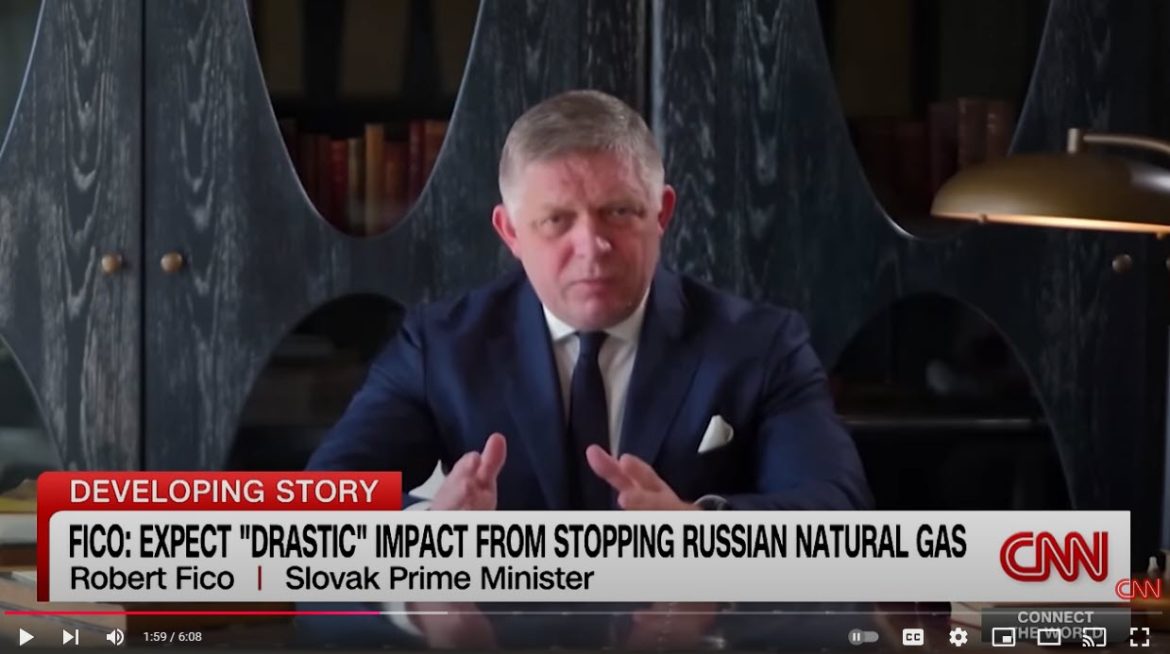Ukraine announces the termination of Russian gas transit to Europe, a move that underscores the growing economic and geopolitical tensions resulting from the ongoing conflict between the two nations. The decision, made official by Ukrainian energy authorities, marks a significant escalation in the energy standoff, with implications for European countries that have long relied on Russian natural gas delivered through Ukraine’s pipelines.
Ukrainian officials state that the decision to end Russian gas transit is a direct response to Moscow’s continued aggression and its refusal to honor previous agreements. The move aligns with Kyiv’s broader strategy to sever economic ties with Russia while seeking greater integration with Europe and Western allies. Ukraine’s leadership asserts that maintaining transit agreements with a country engaged in active military hostilities undermines the nation’s sovereignty and security.
European countries, many of which have relied on Russian gas for decades, are bracing for potential energy shortages and price increases. The termination of the transit comes during a critical period as Europe continues to adapt to reduced Russian energy imports following sanctions imposed in response to the war in Ukraine. The European Union has already accelerated efforts to diversify energy sources, expanding imports of liquefied natural gas (LNG) from the United States and other countries while investing in renewable energy and infrastructure.
Analysts warn that the end of Ukrainian transit will likely exacerbate Europe’s energy challenges, particularly during the winter months. While countries like Germany, Poland, and Italy have made significant progress in reducing dependence on Russian gas, the sudden loss of a key transit route adds new pressure to an already volatile market. Energy prices across the continent are expected to rise, further straining households and industries.
The Kremlin condemns Ukraine’s decision, accusing Kyiv of weaponizing energy supplies and escalating the conflict. Russian energy giant Gazprom, which has historically depended on Ukraine’s pipelines to deliver gas to Europe, reports significant revenue losses as a result of the cutoff. Moscow has vowed to redirect gas flows through other routes, such as the TurkStream pipeline, though these alternatives are limited in capacity.
The announcement has drawn support from Ukraine’s Western allies, who view it as a necessary step in resisting Russian aggression. The United States and European leaders emphasize their commitment to supporting Ukraine both militarily and economically as it defends its sovereignty. Ukrainian President Volodymyr Zelenskyy highlights the decision as a demonstration of Ukraine’s resolve to stand firm against Russian dominance in all sectors, including energy.
The end of Russian gas transit through Ukraine represents a pivotal moment in the geopolitical energy landscape. For decades, the Ukrainian pipeline network has been a vital conduit for Russian gas to Europe, generating revenue for Kyiv and ensuring energy security for the continent. The current shift signals a broader realignment as Europe seeks to reduce reliance on Russian resources and Ukraine positions itself as a frontline state in the struggle against authoritarianism.
As the conflict between Ukraine and Russia continues, the energy war is likely to intensify. European leaders are urging citizens to conserve energy and exploring additional measures to stabilize markets. Meanwhile, Ukraine remains steadfast in its determination to sever ties with Russia and build a future aligned with European and Western values.



